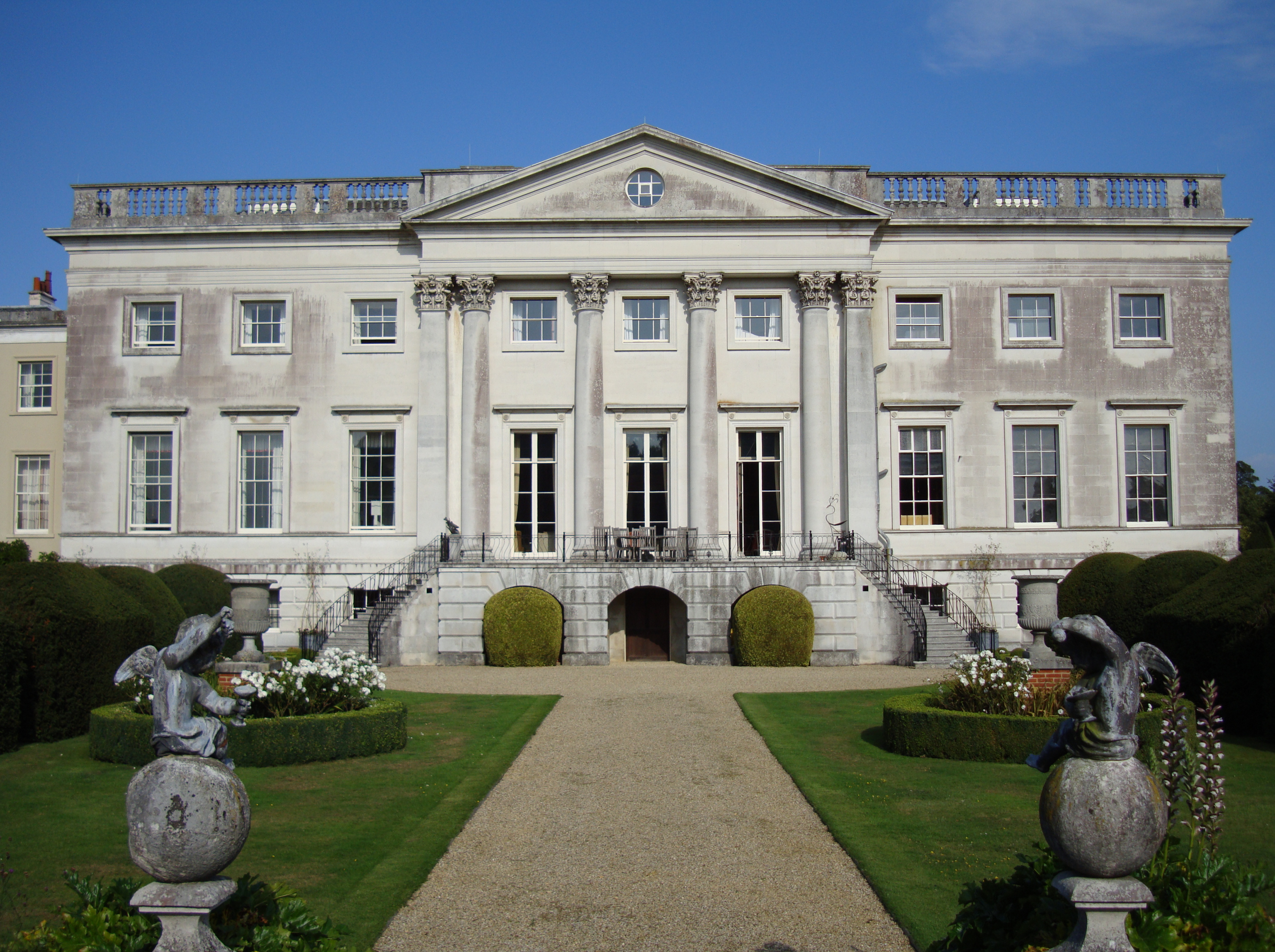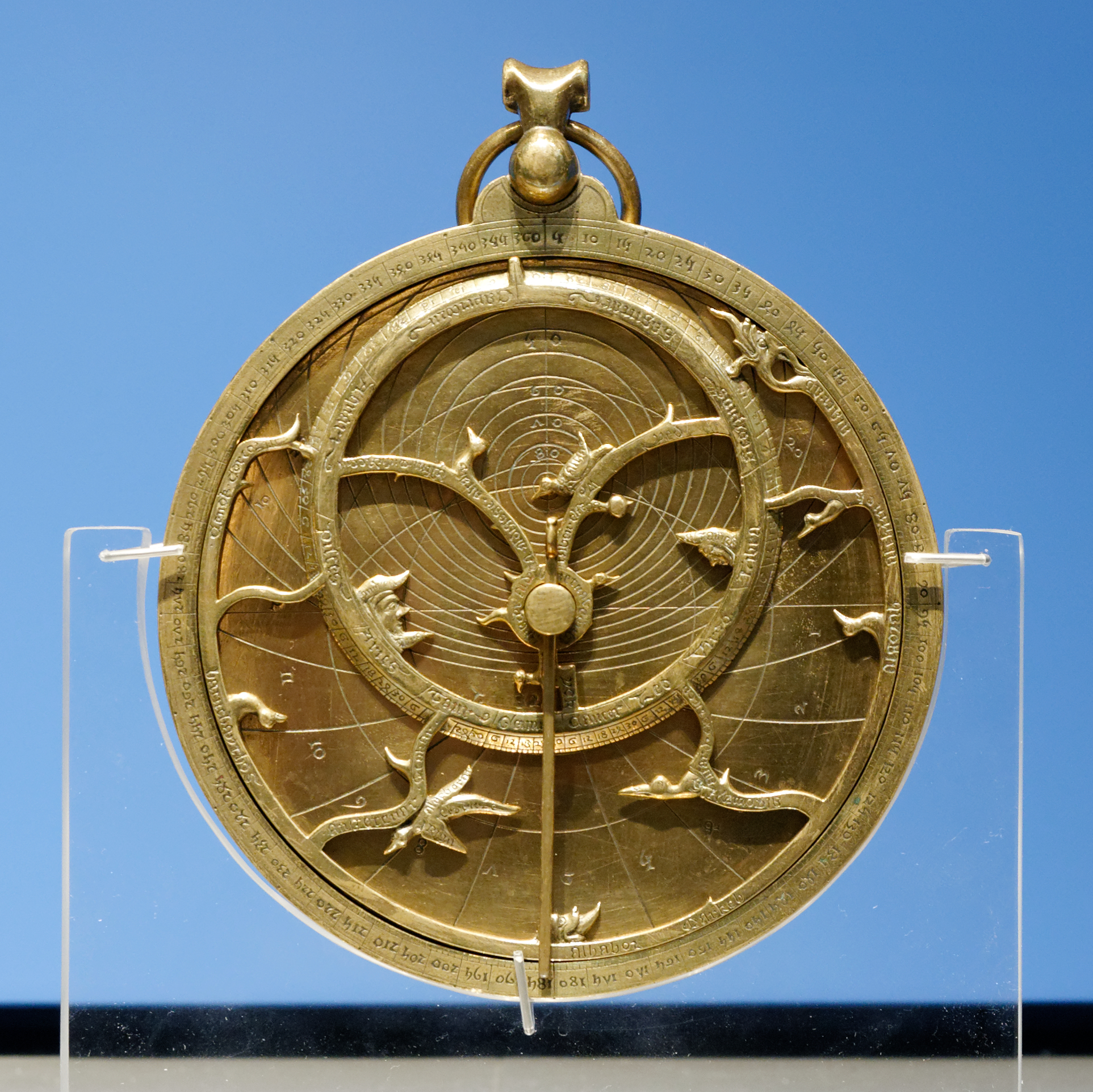|
John Westwyk
John Westwyk (; also known as John of Westwick; Latin: Johannes de Westwyke; c.1350-c.1400) was an English astronomer, adventurer, Benedictine monk, and author of the '' Equatorie of the Planetis''. Biography Little is known of John Westwyk's early life. The name Westwyk is almost certainly a toponym; he presumably came from the hamlet of Gorham-Westwick, two miles west of St Albans. He was a monk of St Albans Abbey by 1380, and was most likely ordained between 1368 and 1379. Like many monks, he was probably the son of a mid-ranking peasant or yeoman. Westwyk probably received a basic education in the almonry school associated with the Abbey. Like around ten per cent of the St Albans monks, he may have attended the University of Oxford. He certainly studied astronomy within St Albans Abbey, and wrote out or annotated at least two astronomy books while there. Both books contained works by former abbot Richard of Wallingford (r. 1327-36), testament to Wallingford's longstanding in ... [...More Info...] [...Related Items...] OR: [Wikipedia] [Google] [Baidu] |
Gorhambury
Old Gorhambury House located near St Albans, Hertfordshire, England, is a ruined Elizabethan mansion, a leading and early example of the Elizabethan prodigy house. It was built in 1563–68 by Nicholas Bacon (courtier), Sir Nicholas Bacon, Lord Keeper of the Great Seal, Lord Keeper, and was visited a number of times by Queen Elizabeth I of England, Queen Elizabeth I. It is a Grade I listed building. The house was built partly from bricks taken from the old St Albans Abbey, Abbey buildings at St Albans, then in process of demolition following the Benedictine priory's Dissolution of the Monasteries, dissolution some 25 years earlier. It was used as a residence by his youngest son, the polymath (scientist, philosopher, politician, statesman and essayist) Sir Francis Bacon, before being bequeathed by him to his former secretary, Sir Thomas Meautys, who married Anne Bacon, the great-granddaughter of Sir Nicholas. The estate passed in 1652 to Anne's second husband Sir Harbottle Grim ... [...More Info...] [...Related Items...] OR: [Wikipedia] [Google] [Baidu] |
Thomas Walsingham
Thomas Walsingham (died c. 1422) was an English chronicler, and is the source of much of the knowledge of the reigns of Richard II, Henry IV and Henry V, and the careers of John Wycliff and Wat Tyler. Walsingham was a Benedictine monk who spent most of his life at St Albans Abbey, where he was superintendent of the copying room (scriptorium). His works include ''Chronicon Angliæ'', controversially attacking John of Gaunt, and ''Ypodigma Neustriæ'' (Chronicle of Normandy), justifying Henry V's invasion, and dedicated to him in 1419. He is no relation to Sir Francis Walsingham, spymaster to Queen Elizabeth I. Life He became a monk at St Albans, where he appears to have passed the whole of his monastic life, excepting a period from 1394 to 1396 during which he was prior of Wymondham Abbey, Norfolk, England, another Benedictine house. At St Albans he was in charge of the ''scriptorium'', or writing room, and he died in about 1422. Walsingham is stated by Bale and Pits to hav ... [...More Info...] [...Related Items...] OR: [Wikipedia] [Google] [Baidu] |
1350 Births
135 may refer to: * 135 (number) * AD 135 * 135 BC *135 film 135 film, more popularly referred to as 35 mm film or 35 mm, is a format of photographic film used for still photography. It is a film with a film gauge of loaded into a standardized type of magazine – also referred to as a casse ..., better known as 35 mm film, is a format of photographic film used for still photography * 135 (New Jersey bus) {{numberdis ... [...More Info...] [...Related Items...] OR: [Wikipedia] [Google] [Baidu] |
Year Of Birth Uncertain
A year or annus is the orbital period of a planetary body, for example, the Earth, moving in Earth's orbit, its orbit around the Sun. Due to the Earth's axial tilt, the course of a year sees the passing of the seasons, marked by change in weather, the hours of daylight, and, consequently, vegetation and soil fertility. In temperate and subpolar climate, subpolar regions around the planet, four seasons are generally recognized: spring (season), spring, summer, autumn and winter. In tropics, tropical and subtropics, subtropical regions, several geographical sectors do not present defined seasons; but in the tropics#Seasons and climate, seasonal tropics, the annual wet season, wet and dry seasons are recognized and tracked. A calendar year is an approximation of the number of days of the Earth's orbital period, as counted in a given calendar. The Gregorian calendar, or modern calendar, presents its calendar year to be either a common year of 365 days or a leap year of 366 days, a ... [...More Info...] [...Related Items...] OR: [Wikipedia] [Google] [Baidu] |
John North (historian)
John David North (19 May 1934 – 31 October 2008) was a British historian of science and author of numerous books. North was born in Cheltenham, Gloucestershire in 1934. He attended Batley Grammar School and then read Mathematics at Merton College, Oxford and later Philosophy, Politics and Economics. He met his wife Marion in Oxford, and married her in 1957. Later he went to London University where he took an external degree in Astronomy, Physics and Applied Maths in 1958. His first book was ''The Measure of the Universe: a History of Modern Cosmology'' (1965), which was praised as "a virtually complete history of modern cosmology". Not long after he started studying medieval science as he had been appointed librarian and assistant curator of the Museum of the History of Science, Oxford. He was appointed Professor of History of Philosophy and the Exact Sciences at the University of Groningen, Netherlands in 1977, where he stayed until his retirement in 1999. North was electe ... [...More Info...] [...Related Items...] OR: [Wikipedia] [Google] [Baidu] |
Derek De Solla Price
Derek John de Solla Price (22 January 1922 – 3 September 1983) was a British physicist, historian of science, and information scientist. He was known for his investigation of the Antikythera mechanism, an ancient Greek planetary computer, and for quantitative studies on scientific publications, which led to his being described as the "Herald of scientometrics". Biography Price was born in Leyton, England, to Philip Price, a tailor, and Fanny de Solla, a singer. He began work in 1938 as an assistant in a physics laboratory at the South West Essex Technical College, before studying Physics and Mathematics at the University of London, where he received a Bachelor of Science in 1942. He then worked as an assistant to Harry Lowery carrying out research on hot and molten metals, and working towards a London external Ph.D. in experimental physics which he obtained in 1946. This work led to several research papers and to a patent for an emissive-correcting optical pyrometer. He then ... [...More Info...] [...Related Items...] OR: [Wikipedia] [Google] [Baidu] |
Peterhouse, Cambridge
Peterhouse is the oldest constituent college of the University of Cambridge in England, founded in 1284 by Hugh de Balsham, Bishop of Ely. Today, Peterhouse has 254 undergraduates, 116 full-time graduate students and 54 fellows. It is quite often erroneously referred to as ''Peterhouse College'', although the correct name is simply ''Peterhouse''. Peterhouse alumni are notably eminent within the natural sciences, including scientists Lord Kelvin, Henry Cavendish, Charles Babbage, James Clerk Maxwell, James Dewar, Frank Whittle, and five Nobel prize winners in science: Sir John Kendrew, Sir Aaron Klug, Archer Martin, Max Perutz, and Michael Levitt. Peterhouse alumni also include the Archbishop of Canterbury John Whitgift, Lord Chancellors, Lord Chief Justices, as well as Oscar-winning film director Sam Mendes, and comedian David Mitchell. British Prime Minister Augustus FitzRoy, 3rd Duke of Grafton, and Elijah Mudenda, second prime minister of Zambia, also studied at t ... [...More Info...] [...Related Items...] OR: [Wikipedia] [Google] [Baidu] |
Indult
In Catholic canon law, an indult is a permission or privilege, granted by the competent church authority – the Holy See or the diocesan bishop, as the case may be – for an exception from a particular norm of church law in an individual case. For example, according to the canons 692 and 693 of the 1983 ''Code of Canon Law'', an indult is needed when members of the consecrated life want to be dispensed from their religious vows, or when priests and deacons voluntarily seek to return to the lay state (usually to marry). A recent indult was the one granted in 1984 by Pope John Paul II, ''Quattuor abhinc annos'', which authorised the world's Catholic bishops to permit celebrations of the Tridentine Mass liturgy in their dioceses. This indult was superseded in 2007 by new legislation introduced by Pope Benedict XVI in the ''motu proprio'' ''Summorum Pontificum ''Summorum Pontificum'' (English: "Of the Supreme Pontiffs") is an apostolic letter of Pope Benedict XVI, issued in ... [...More Info...] [...Related Items...] OR: [Wikipedia] [Google] [Baidu] |
Treatise On The Astrolabe
''A Treatise on the Astrolabe'' is a medieval instruction manual on the astrolabe by Geoffrey Chaucer. It describes both the form and the proper use of the instrument, and stands out as a prose technical work from a writer better known for poetry, written in English rather than the more typical Latin. Significance The ''Treatise'' is considered the "oldest work in English written upon an elaborate scientific instrument". It is admired for its clarity in explaining difficult concepts – although modern readers lacking an actual astrolabe may find the details of the astrolabe difficult to understand. Robinson believes that it indicates that had Chaucer written more freely composed prose it would have been superior to his translations of Boethius and Renaut de Louhans. Chaucer’s exact source is undetermined but most of his ‘conclusions’ go back, directly or indirectly, to ''Compositio et Operatio Astrolabii'', a Latin translation of Messahala's Arabic treatise of the 8 ... [...More Info...] [...Related Items...] OR: [Wikipedia] [Google] [Baidu] |
Geoffrey Chaucer
Geoffrey Chaucer (; – 25 October 1400) was an English poet, author, and civil servant best known for ''The Canterbury Tales''. He has been called the "father of English literature", or, alternatively, the "father of English poetry". He was the first writer to be buried in what has since come to be called Poets' Corner, in Westminster Abbey. Chaucer also gained fame as a philosopher and astronomer, composing the scientific ''A Treatise on the Astrolabe'' for his 10-year-old son Lewis. He maintained a career in the civil service as a bureaucrat, courtier, diplomat, and member of parliament. Among Chaucer's many other works are ''The Book of the Duchess'', ''The House of Fame'', ''The Legend of Good Women'', and ''Troilus and Criseyde''. He is seen as crucial in legitimising the literary use of Middle English when the dominant literary languages in England were still Anglo-Norman French and Latin. Chaucer's contemporary Thomas Hoccleve hailed him as "the firste fyndere of our ... [...More Info...] [...Related Items...] OR: [Wikipedia] [Google] [Baidu] |
Middle English
Middle English (abbreviated to ME) is a form of the English language that was spoken after the Norman conquest of 1066, until the late 15th century. The English language underwent distinct variations and developments following the Old English period. Scholarly opinion varies, but the ''Oxford English Dictionary'' specifies the period when Middle English was spoken as being from 1150 to 1500. This stage of the development of the English language roughly followed the High to the Late Middle Ages. Middle English saw significant changes to its vocabulary, grammar, pronunciation, and orthography. Writing conventions during the Middle English period varied widely. Examples of writing from this period that have survived show extensive regional variation. The more standardized Old English language became fragmented, localized, and was, for the most part, being improvised. By the end of the period (about 1470) and aided by the invention of the printing press by Johannes Gutenberg in 14 ... [...More Info...] [...Related Items...] OR: [Wikipedia] [Google] [Baidu] |





